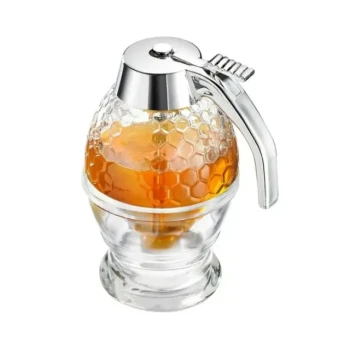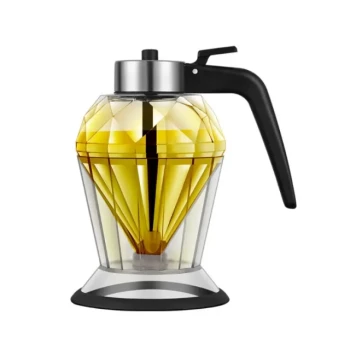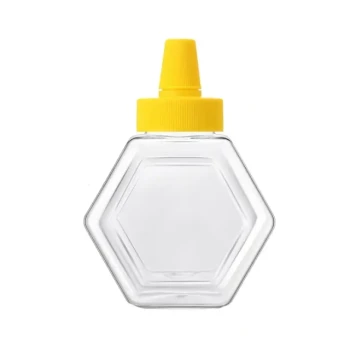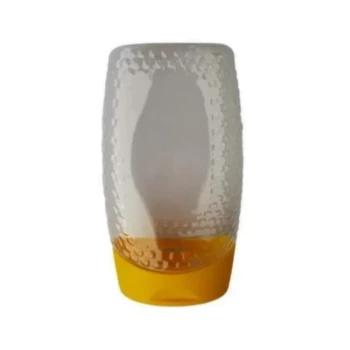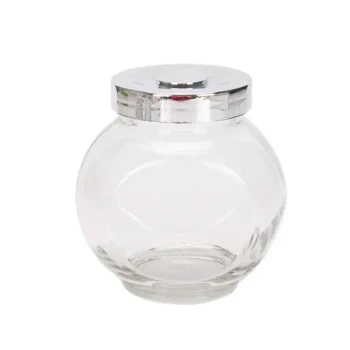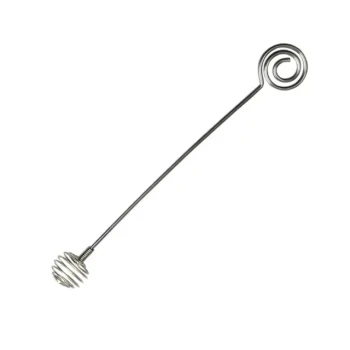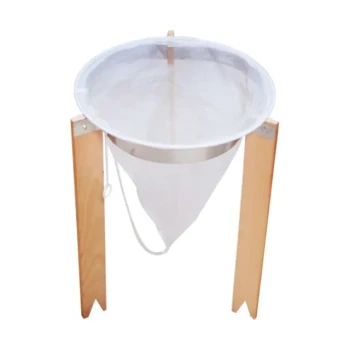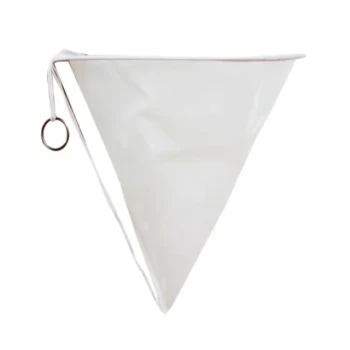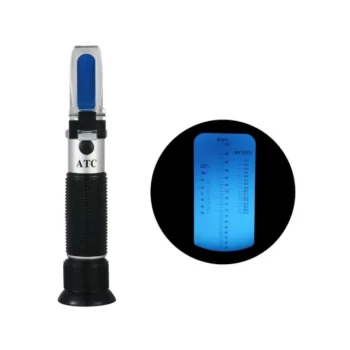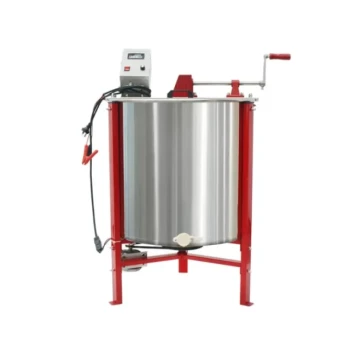No, you should not refrigerate honey. In fact, refrigeration is detrimental to honey's texture, causing it to thicken and crystallize rapidly. Honey's natural composition of low water and high acidity makes it one of the most stable foods in the world, allowing it to be stored safely at room temperature for years without spoiling.
The goal of proper honey storage is to preserve its liquid texture and natural quality. The best method is to keep it in a tightly sealed, non-metal container at a stable room temperature, away from direct sunlight.
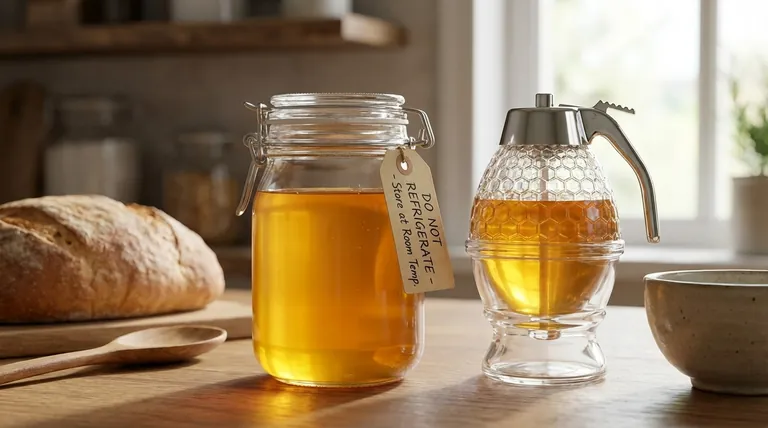
Why Honey is Naturally Shelf-Stable
Honey is a supersaturated sugar solution with unique properties that make it an inhospitable environment for bacteria and other microbes. Understanding these properties is key to storing it correctly.
The Role of Low Water Content
Honey has a very low water content, typically around 17%. This low moisture level effectively dehydrates any yeast or bacteria that come into contact with it, preventing them from surviving and multiplying.
The Impact of High Acidity
Honey is also naturally acidic, with a pH between 3.5 and 4.5. This acidity further inhibits the growth of virtually all microorganisms, acting as a natural preservative.
The Correct Way to Store Honey
Proper storage is simple and focuses on protecting honey from external elements that can degrade its quality over time.
Choose the Right Container
Always store honey in a tightly sealed container. This prevents it from absorbing moisture from the surrounding air, which could eventually dilute it enough to allow fermentation.
The original container, a glass jar, or a food-safe plastic container are all excellent choices. Avoid storing honey in metal containers, as the honey's natural acidity can cause the metal to oxidize over time, contaminating the honey.
Find the Ideal Environment
The best place for your honey is a cool, dark location like a pantry or cupboard. The key is a stable room temperature. Avoid placing it near a stove or in direct sunlight, as heat can degrade its delicate flavors and darken its color.
Understanding the Trade-offs: Crystallization
The most common issue with honey storage is not spoilage, but crystallization. While not a sign of contamination, it can be an inconvenience.
The Problem with Refrigeration
Cool temperatures are the primary trigger for crystallization. When honey is refrigerated, the glucose rapidly separates from the water, forming sugar crystals. This process turns smooth, liquid honey into a thick, semi-solid mass that is difficult to pour.
Is Crystallization Bad?
Crystallization is a natural process and does not mean the honey has gone bad. In fact, it's a sign of high-quality, natural honey. You can easily reverse it by placing the honey jar in a bowl of warm (not boiling) water and stirring gently until the crystals dissolve.
Slowing Down Crystallization
While you can't stop crystallization forever (especially in raw honey), storing it at a stable room temperature is the best way to slow the process down.
Making the Right Choice for Your Goal
Your storage method should align with how you plan to use your honey.
- If your primary focus is daily use and convenience: Store honey in a sealed jar in your pantry for easy, pourable access.
- If your primary focus is preserving raw honey's qualities: Keep it in a cool, dark place to slow both crystallization and any potential degradation of its enzymes and delicate aromas.
- If your primary focus is avoiding crystallization at all costs: Understand that this is a natural process, but stable room temperature storage is your best defense against it happening quickly.
Ultimately, proper honey storage is about working with its natural properties, not fighting against them with unnecessary refrigeration.
Summary Table:
| Storage Factor | Do's | Don'ts |
|---|---|---|
| Temperature | Stable room temperature (pantry) | Refrigerate or place near heat sources |
| Container | Tightly sealed glass or food-safe plastic | Use metal containers (causes oxidation) |
| Location | Cool, dark cupboard away from sunlight | Store in direct sunlight or fluctuating temps |
| Goal | Preserve liquid texture and natural enzymes | Trigger rapid crystallization and thickening |
Need reliable honey storage solutions for your apiary or distribution business? Proper storage is key to maintaining honey quality from hive to shelf. HONESTBEE supplies commercial apiaries and beekeeping equipment distributors with durable, food-safe containers and wholesale-focused equipment designed to protect your product's integrity. Contact our experts today to discuss bulk storage solutions that preserve your honey's natural quality and value.
Visual Guide

Related Products
- Honeycomb Style Drip Free Honey Dispenser
- Premium Diamond-Faceted Glass Honey Dispenser
- Hexagonal Squeeze Honey Bottle with No Drip Lid
- Inverted Squeezable Honey Jar with No Drip Flip Top Cap for Easy Pouring
- Classic Drum Shaped Glass Honey Jar with Airtight Lid
People Also Ask
- What is the function of specialized cardboard containers for importing package bees? Ensuring Safe Apiary Transport
- What are the recommended criteria for determining the appropriate time to harvest honey? Ensure a Sustainable Harvest
- What is the role of advanced mechanized apiary equipment in climate-adaptive management? Build a Resilient Operation
- What is the importance of sealed sampling vials in bee parasite collection? Protect Your Data with Leak-Proof Consumables
- Why is it necessary to use high-precision weighing equipment for comparative weighing? Boost Your Apiary Data Accuracy
- What are the primary functional roles of horizontal earthenware jar beehives? Traditional Wisdom for Modern Beekeeping
- What is the function of a large-capacity centrifuge in melissopalynological analysis? Optimize Your Honey Origin Testing
- What are the ideal weather conditions for a beekeeper to add a honey super? Optimize Your Honey Harvest Timing
